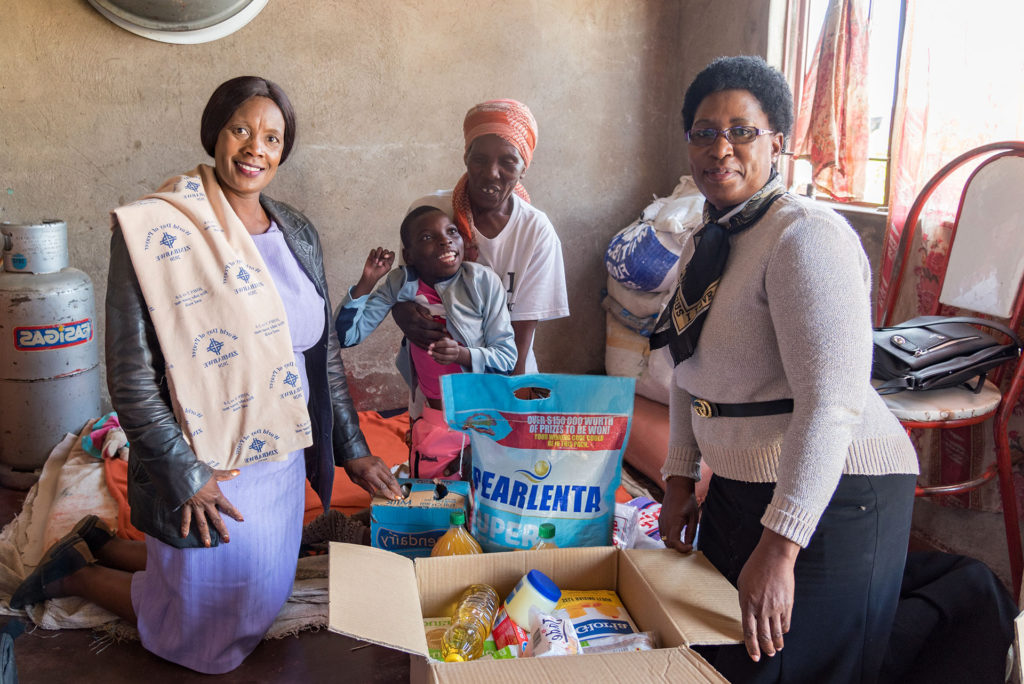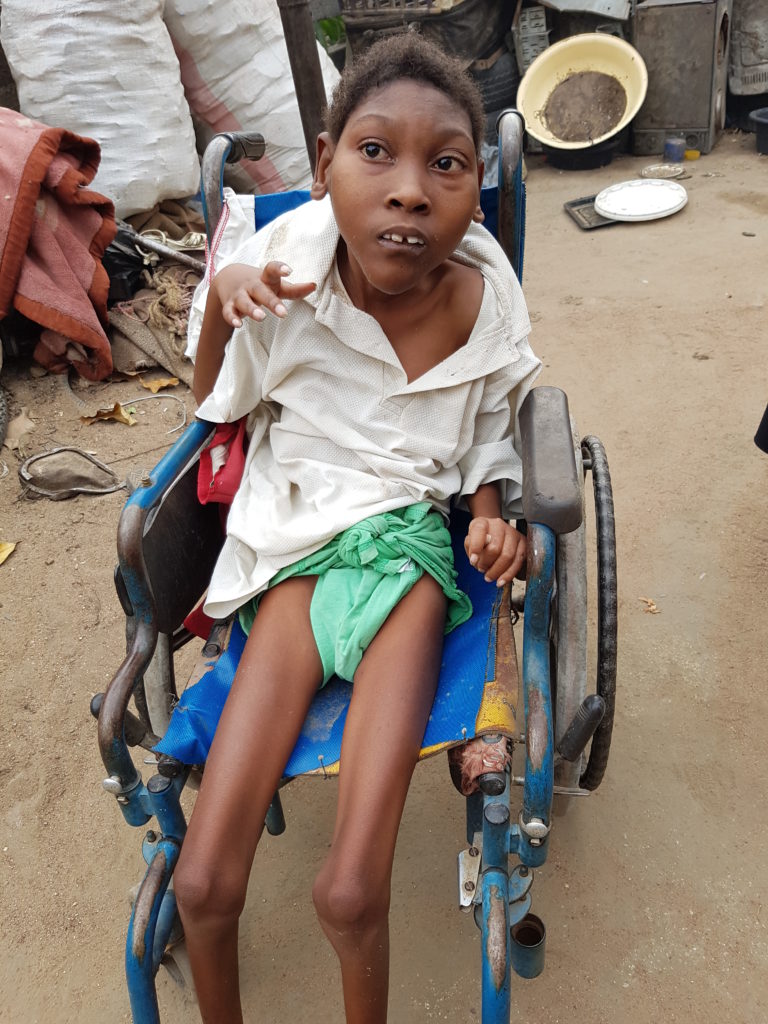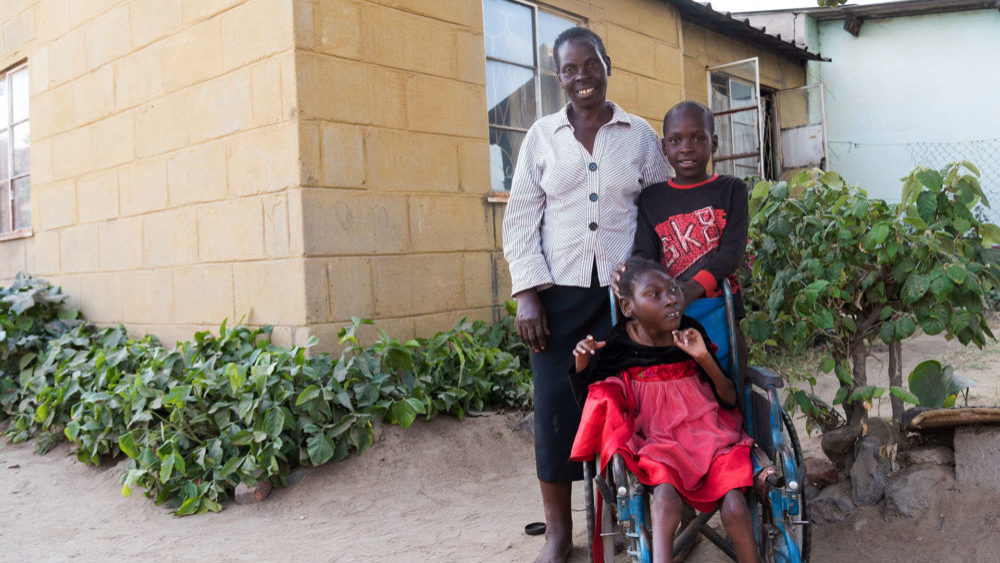Christians across the globe will be praying for the country of Zimbabwe this Friday, March 6 – from the first sunrise to the last sunset.
The annual World Day of Prayer (WDP) – held on the first Friday in March – is now celebrated in more than 170 countries, with organised prayer and worship services in churches, Scripture classes, nursing homes, chapels and small groups. In Australia, around 900 WDP services will take place around the country.
“Zimbabwe experienced political violence for many years,” a WDP Zimbabwe member writes. “And the traumas and tensions are still alive in the communities. In the process of bringing reconciliation, it is said that we must forgive, but just saying it does not make it happen. We need to be able to accept that we have been hurt, and go through the process of healing. Others need to acknowledge that they have hurt, and show they are sorry. We need to listen to each other. Peace begins with me and with you. The ingredient of peace is love, and where there is reconciliation, peace comes.”
WDP has a motto of “informed prayer and prayerful action” which means its prayer events also support practical projects.
“Her mother cried, telling us of their lives and what it is like for her to be the mother of a child with a disability in Zimbabwe.” – Belinda Faulks
While the world’s eye is on their country, Bible Society Zimbabwe and WDP Zimbabwe have joined together to launch a new project on the World Day of Prayer called “Empowering mothers of differently able children”. Their aim is to help 10,000 people “live a full and flourishing life”.
While Zimbabwe is a country with massive economic and social needs overall, with over 70 percent of the population living in poverty, the most vulnerable are women and the 900,000 Zimbabweans living with a disability, who are often stigmatised and shunned in their communities.

The WDP 2020 logo shows the transition from a difficult past to reconciliation. Nonhlanhla Mathe/ World Day of Prayer
Ninety per cent of Zimbabwean fathers who have disabled children leave their family (according to WDP statistics). This means mothers are left to raise children on their own.. These women are also socially isolated and many are no longer able to attend church due to the stigma around disability.
“With WDP we want to see how we can empower these mothers and lift them spiritually so that they will be able to interact with others and go to church,” explains Chipo Maringe, General Secretary of the Bible Society of Zimbabwe.
This involves setting up mothers’ support groups and Bible studies, educating local churches in how to support these families, and providing Bibles, children’s Bibles and Proclaimers – solar-powered audio units to listen to the Bible.

Florence Mhandu and her 10-year-old disabled granddaughter Memory receive supplies. World Day of Prayer/ Bible Society of Zimbabwe
In addition to spiritual support, the project also provides practical help for these families by providing medicines and equipment like wheelchairs and hearing aids; respite care to enable mothers to work and attend church; literacy support for children with dyslexia; and workshops on income generation, run in collaboration with the disability support organisation Jairos Jiri Association.
“We realised that, as much as we want to bring them the Word of God, we also need to empower them somehow, so that they have food, they have whatever they need … So that when we share the Word of God, we are on the same level. We are also preparing some income-generating workshops so that the mothers won’t be so dependent on the communities and relatives who aren’t so forthcoming anyway,” says Maringe.
As WDP and Bible Society Zimbabwe call on people to support the project financially, as well as through prayer, Maringe adds: “We want to thank all our friends, the donors, the funders … Thank you so much for what you are doing for us in Zimbabwe. Thank you so much for partnering with us.”
Bible Society Australia’s Project and Relationship Manager, Belinda Faulks, has seen first-hand the difference that the project can make in the lives of mothers of children living with a disability. She tells the story of meeting one of these families on a recent trip to Zimbabwe:
“Charmaine is an 18-year-old girl who is the size of a toddler. She has cerebral palsy and cannot talk, move or swallow. As is common in Zimbabwe, her father left the family shortly after her birth as he couldn’t accept his child had a disability. Children with special needs are often shunned and viewed as evil, even within the Christian community, and life is desperately hard for the mothers who are left to raise them alone. Charmaine’s mother Juliet, who is blind, now also raises four young grandchildren, as well as caring for her elderly mother and, of course, Charmaine.
“They have absolutely nothing and live in extreme poverty. When I was there, flies were hovering around Charmaine because she salivates constantly. Her nine-year-old nephew, Patrick, was by her side wiping her face and fanning her to chase the flies away. She was wrapped in a t-shirt that was being used as a nappy, and sitting in a broken-down wheelchair. Her mother cried, telling us of their lives and what it is like for her to be the mother of a child with a disability in Zimbabwe. All of us visiting wept that day. It honestly was devastating, and a day I will remember forever.”

Charmaine Belinda Faulks
Through the “Empowering mothers” project, Juliet was provided with a blender to properly process Charmaine’s food and deliver much-needed nutrients to her. Bible Society Zimbabwe has begun providing groceries to the family each month and is teaching Juliet income generation skills. She was also provided with a Proclaimer to listen to the Bible with Charmaine and others in their neighbourhood.
“I am comforted by the Proclaimer which was given to me,” Juliet told Bible Society Zimbabwe. “I listen to it and it consoles me in my hours of need. And God gave me people who console me. My burdens now seem lighter.”
Each year’s prayer events are coordinated by World Day of Prayer International, an ecumenical movement of Christian women. It began in 1927 when a group of North American women joined together to form a “worldwide sisterhood of prayer, sharing our sorrows and joys”. The name was changed to World Day of Prayer in 1986 to make it more inclusive. Today, a WDP International committee (based in Canada) still directs the event, with committees in 160 different countries (and five regional Australian committees).
Each year a different country and theme is selected as a focus for global prayer. The 2020 WDP theme for Zimbabwe, “Rise! Take Your Mat and Walk,” is based on Jesus’ encounter with a lame man in John 5:2-9.
To find a World Day of Prayer service in your local area or to download WDP service materials, visit worlddayofprayeraustralia.org.
For more information or to donate to the “Empowering mothers of differently able children” project, go to biblesociety.org.au/projects/Zimbabwe.
Pray
Some prayer points to help
- The World Day of Prayer Zimbabwe has supplied the following prayer for WDP services:
“God of Peace, we pray for everyone to know that despite political, religious and social differences we need to love, to reconcile with each other and have peace. We pray for broken homes to be reconciled, for women to live in security and for the communities to be open to peace building. In the name of the Prince of Peace – Jesus. Amen.” - Please also pray for the Bible Society of Zimbabwe as it reaches out to families with disabled children who are isolated and struggling. Ask God to bless their partnership with the World Day of Prayer and Jairos Jiri so that these vulnerable mothers receive Scriptures, practical help and encouragement.

